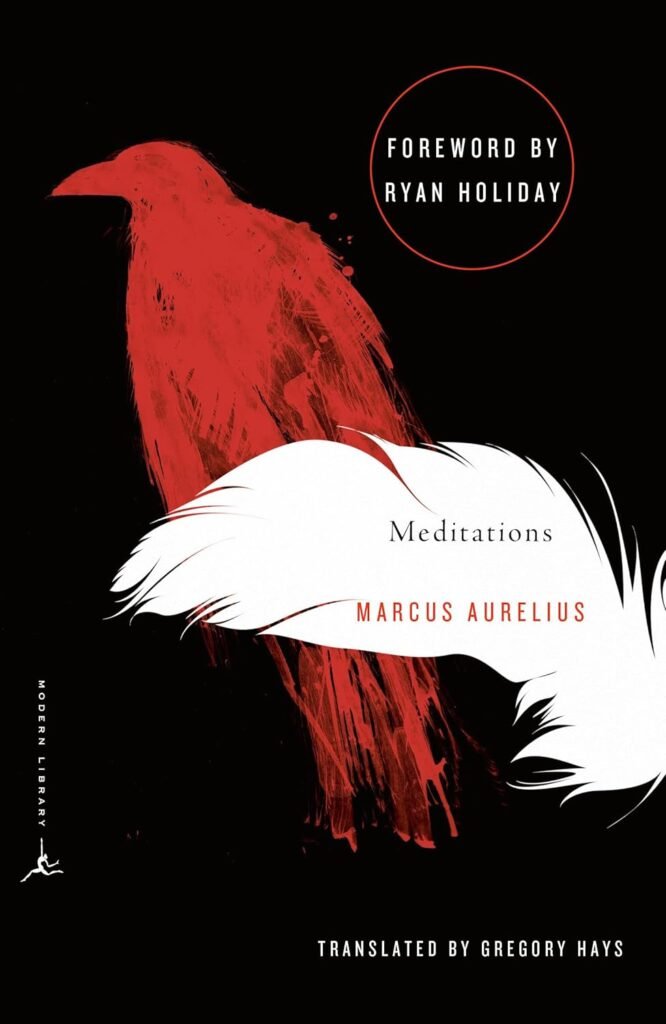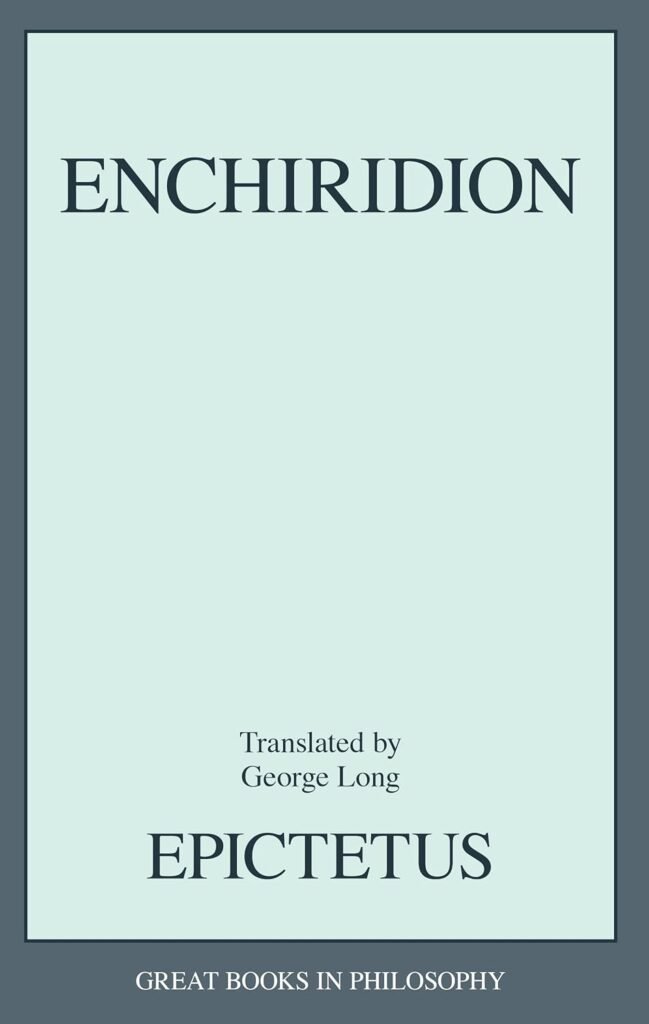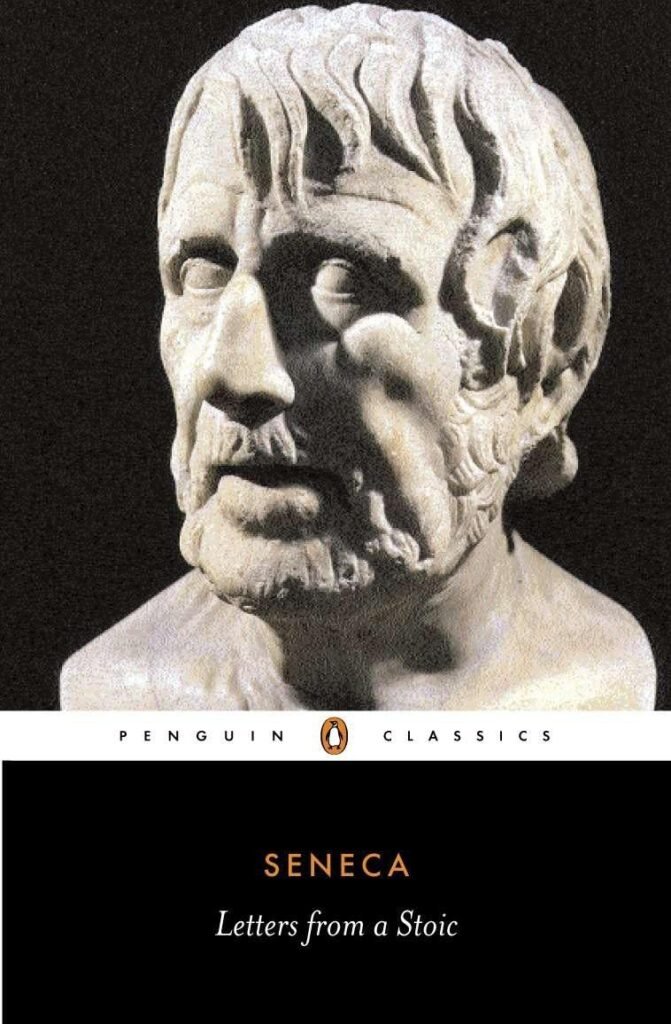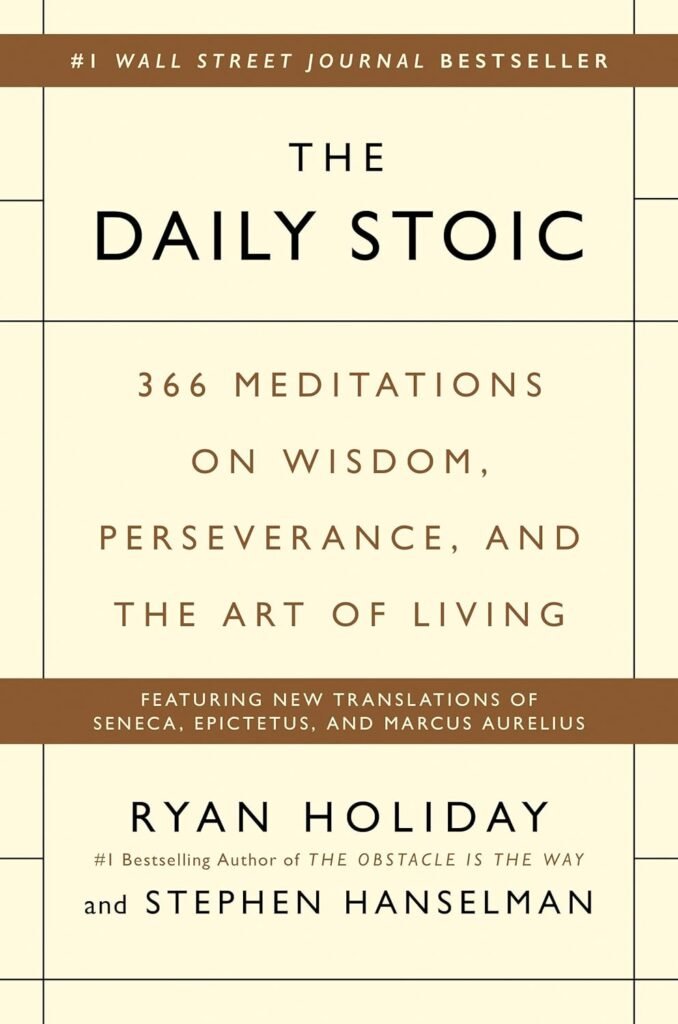Table of Contents
Introduction: Cutting Through the Noise
With dozens of books on Stoicism available, how do you know which ones are truly worth your time and practice? Should you start with Epictetus Marcus Aurelius, or dive straight into Seneca? Some promise “daily wisdom,” others claim to be the next Meditations — but few deliver enduring value.
As a long-time practitioner, I’ve built and refined my Stoic library over more than a decade. This isn’t just a list — it’s a curated path from beginner to adept.
This guide cuts through the noise, reviewing only the works of Epictetus, Marcus Aurelius, Seneca, and modern interpreters that offer genuine practical value, based on their availability, relevance today, and timeless teachings.
Epictetus and Marcus Aurelius: Where to Begin
Before exploring Seneca or modern interpreters, it’s worth asking: Why do so many readers start with Epictetus and Marcus Aurelius? Together, they form the backbone of practical Stoicism — one teaching through classroom-like dialogues, the other through private meditations.
Why Epictetus Marcus Aurelius Remain Central to Stoicism
The teachings of epictetus marcus aurelius complement each other. Epictetus provides structure through the Dichotomy of Control, while Marcus shows the inner struggles of applying it as a leader. Together, they embody Stoicism in practice, not theory.
The Beginner’s Path: Entering Stoicism
Meditations by Marcus Aurelius
Core Philosophy: Self-mastery and acceptance of what lies beyond control. Central to Marcus Aurelius is the practice of aligning action with virtue, regardless of external events.
Why It’s Essential: Written as private notes, Meditations is not lofty philosophy—it’s the diary of a man burdened with ruling Rome, struggling with anger, ego, and mortality.
Practical Application: After reading Book II, ask yourself daily: “What is within my control today? What must I let go?”Write this in your journal each morning.
Modern Relevance: Thousands of Amazon reviewers praise it as “life-changing” and “more practical than modern self-help.” Some note its fragmented style can be hard to follow—but that’s also its raw beauty. Frequently marked “Amazon’s Choice” among Stoic philosophy books.
Table of Contents
Introduction: Cutting Through the Noise
With dozens of books on Stoicism available, how do you know which ones are truly worth your time and practice? Should you start with Epictetus Marcus Aurelius, or dive straight into Seneca? Some promise “daily wisdom,” others claim to be the next Meditations — but few deliver enduring value.
As a long-time practitioner, I’ve built and refined my Stoic library over more than a decade. This isn’t just a list — it’s a curated path from beginner to adept.
This guide cuts through the noise, reviewing only the works of Epictetus, Marcus Aurelius, Seneca, and modern interpreters that offer genuine practical value, based on their availability, relevance today, and timeless teachings.
Epictetus and Marcus Aurelius: Where to Begin
Before exploring Seneca or modern interpreters, it’s worth asking: Why do so many readers start with Epictetus and Marcus Aurelius? Together, they form the backbone of practical Stoicism — one teaching through classroom-like dialogues, the other through private meditations.
Why Epictetus Marcus Aurelius Remain Central to Stoicism
The teachings of epictetus marcus aurelius complement each other. Epictetus provides structure through the Dichotomy of Control, while Marcus shows the inner struggles of applying it as a leader. Together, they embody Stoicism in practice, not theory.
The Beginner’s Path: Entering Stoicism
Meditations by Marcus Aurelius

Core Philosophy: Self-mastery and acceptance of what lies beyond control. Central to Marcus Aurelius is the practice of aligning action with virtue, regardless of external events.
Why It’s Essential: Written as private notes, Meditations is not lofty philosophy—it’s the diary of a man burdened with ruling Rome, struggling with anger, ego, and mortality.
Practical Application: After reading Book II, ask yourself daily: “What is within my control today? What must I let go?”Write this in your journal each morning.
Modern Relevance: Thousands of Amazon reviewers praise it as “life-changing” and “more practical than modern self-help.” Some note its fragmented style can be hard to follow—but that’s also its raw beauty. Frequently marked “Amazon’s Choice” among Stoic philosophy books.
Many readers compare epictetus marcus aurelius side by side, finding Marcus’ private reflections a perfect counterbalance to Epictetus’ more disciplined instructions.
👉 Unique Flavor: Meditations is personal, emotional, and reflective. You’re eavesdropping on a Stoic in practice, not in theory.
The Enchiridion by Epictetus

Core Philosophy: The Dichotomy of Control — some things are up to us, others are not.
Why It’s Essential: This pocket handbook distills Epictetus’ teachings into bite-sized principles. Unlike abstract philosophy, it’s a soldier’s manual for the mind.
Practical Application: Next time you’re frustrated, repeat: “Is this in my control?” If not, drop it. Journal one example per day of where this practice saved you stress.
Modern Relevance: Reviews praise its brevity and clarity, though some readers find it too stark compared to Meditations. A perennial Amazon bestseller in the “Stoic Philosophy” category.
If you read epictetus marcus aurelius together, Enchiridion works like the foundation while Meditations becomes the personal journal of a Stoic apprentice.
👉 Unique Flavor: Enchiridion is systematic, concise, and prescriptive. It trains the Stoic mindset like a manual for discipline.
How They Differ Together
- Marcus Aurelius: A fellow struggler whispering encouragement.
- Epictetus: A drill sergeant reminding you of the rules.
- Read together, one offers companionship, the other clarity.
For Deep Practice: Stoicism Beyond the Surface
Letters from a Stoic by Seneca

Core Philosophy: Time is our most precious resource — spend it wisely.
Why It’s Essential: Seneca writes as though he were your mentor. His letters cover friendship, wealth, adversity, and mortality, offering practical philosophy for daily living.
Practical Application: After Letter 1, try this: Audit your day. How many hours were wasted on distraction? How can tomorrow be better spent?
Modern Relevance: Consistently praised as the most accessible Stoic text. Some criticize it for occasional hypocrisy (Seneca was wealthy), but that only sharpens its relevance for our consumer age.
Seneca, though different in tone, expands on the same values seen in epictetus marcus aurelius, reminding us that time is the one thing truly in our control.
Discourses by Epictetus

Core Philosophy: Philosophy as training, not theory. Epictetus demands action, not intellectual admiration.
Why It’s Essential: The Discourses expand on the Enchiridion, offering dialogues that feel like sitting in Epictetus’ classroom.
Practical Application: After reading Book I, practice “voluntary discomfort”: skip one luxury today to prove to yourself you can live without it.
Modern Relevance: Reviews describe it as dense but transformational. Best approached slowly, perhaps alongside modern commentaries.
For Modern Application: Stoicism Today
The Daily Stoic by Ryan Holiday & Stephen Hanselman

Core Philosophy: Stoicism as a daily ritual — 366 meditations on wisdom, perseverance, and the art of living.
Why It’s Essential: While not ancient, it brings Epictetus, Marcus Aurelius, and Seneca into a daily rhythm, making philosophy a habit rather than a concept.
Practical Application: Begin your morning with the day’s entry. Write one sentence: How does this apply to my life right now?
Modern Relevance: A consistent Amazon bestseller, with thousands of reviews praising its accessibility. Critics note that it sometimes oversimplifies — but for many, that’s the point: it gets you started.
Many readers use The Daily Stoic to keep the words of epictetus marcus aurelius alive in everyday life, connecting ancient insights to modern challenges.
The Stoic Reading Roadmap
- Start Small: The Enchiridion (Epictetus) – grasp the fundamentals.
- Reflect Deeply: Meditations (Marcus Aurelius) – apply Stoicism in life’s struggles.
- Live Wisely: Letters from a Stoic (Seneca) – master the use of time and relationships.
- Train Hard: Discourses (Epictetus) – commit to philosophy as a way of life.
- Daily Integration: The Daily Stoic – sustain practice with modern structure.
Personal Reflection
I still remember the first time I read Marcus Aurelius on anger: “You will not be punished for your anger — you will be punished by your anger.” That line alone shifted how I handled conflict at work. Instead of firing back emails in frustration, I began pausing, asking, “What is in my control here?” That pause changed a lot in my life.
Frequently Asked Questions
What is the best Stoic book for a beginner?
Start with The Enchiridion by Epictetus. It’s short, clear, and instantly applicable.
Should I read Epictetus Marcus Aurelius together or separately?
Yes, they complement each other. Reading epictetus marcus aurelius side by side offers balance—Epictetus gives clarity and discipline, while Marcus reveals how to apply those principles when life gets messy.
Which Stoic is most practical today: Epictetus, Marcus Aurelius, or Seneca?
- Epictetus: Discipline and resilience.
- Marcus Aurelius: Leadership and self-mastery.
- Seneca: Time management and personal relationships.
Conclusion: The Enduring Value of Epictetus and Marcus Aurelius
You might think a 2000-year-old text is irrelevant but Meditations and The Enchiridion prove otherwise. Together, Epictetus Marcus Aurelius offer a complete foundation for living well. Whether you start with Marcus’ reflections, Seneca’s letters, or Ryan Holiday’s daily meditations, the key is this: don’t just read — practice.
For a deeper dive into how Stoicism directly supports mental wellness, see my article: Mental Health Awareness Beyond Talk: A Proven Stoic’s Guide to Resilient Wellness.
Disclosure: Our site is reader-supported. When you buy through links on our site, we may earn an affiliate commission at no extra cost to you. This allows us to continue providing in-depth, practical guides.







